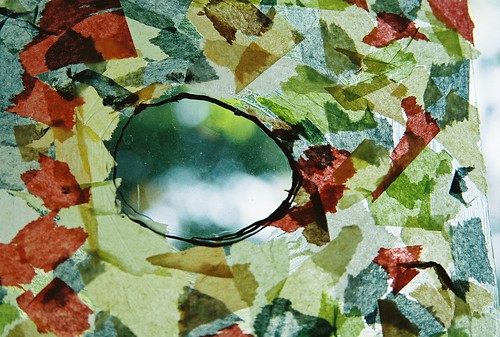
I know Massey doesn't care about an answer. I know he was playing around. For him that sometimes means being confrontational about matters you oughtn't try to confront back, given the mischief of his forums.
***
Okay and if you do try you find there is only a cruder response available. Or an awkward one. But let me try. It will be, for me, the breaking of a long and very awkward silence here. By now, those who'd rather not see pictures of monkland or read excerpts from its residents' writings have moved on. And I would have spared you, I think, had one of you complained, but that's not what people do when they feel bored or angry or as though they are immersed in someone else's stupidity. The first thing we mostly do is get the hell away.
***
"So are you a monk now or what?"
***
"Or what," right? The handshake equivalent of so what. I'm not a monk, and--all the worse for my response--not on my way to becoming a monk, either, no. I will tell you that the superficial likenesses between my life and monk life have made their lives romantically available to me, but only insofar as I like what I see because I'm convinced on some level it showcases the better aspects of the life I've already chosen: the cloister solitude, the teaching, the books, the writing and word-probing, the paying attention. Sure. I'm sure some of the monks I know are worn out by these comparisons in the same way I'm leery of the person who after meeting me says, "Oh. You write poetry. I've always wanted to write poetry." It's not a bad thing, but so long as I am not a monk or so long as you do not write poetry we are reduced to the likeness in comparisons, which is a form of merely idolizing.
***
Most of us aren't capable of it, this every minute striving towards love after having withdrawn permanently from the world. Such a life, even dwelling in its hospitality days at a time over the last two years, is practically unimaginable. There is a third position in monkland, a kind of hybrid border-crosser who straddles the potentially uncomfortable position of being neither privy to the cloister nor exempt from its concerns.
But we are neither of us ready for that either.
***
from The Annunciation Notebook, "Letters to JM":
"But then, what does it mean to empty your head of your own words, of your own wishing, of your own self? Can this be the place of prayer? To stand in where the self once stood seeking itself in itself? To shut out the noise of the self who persists in bumping around in its own dark parts?
I am in my own way. Realizing it has opened up a path towards what feels like a very fragile but approachable silence. I recognize, in reality, that it is my path that is fragile, not this silence, and that it is this silence Who is approaching me, and not the other way around, and that I can do nothing, really, to achieve closure. All I can do is get out of the way.
It’s as if the stones in the path were long ago laid down very crookedly so that the way became impassable, and as though I’m having to agree to His tearing up the masonry one stone at a time so that He might arrive to reset each stone with love in His own good time. Tearing up the masonry is noisy work, and I don’t much like how it feels. It has set a lot of things afloat in the interim, things I do trust will eventually heal, though it is meanwhile now and then pretty uncomfortable, like re-breaking and resetting bones. My sudden overwhelming fear of other people, for instance: just as though something weak (the work of a toddler) had finally snapped. And all this trouble with with writing too—like trying to hear a whisper at a construction site full of jackhammers— in the midst of other old worries rearing their thorny heads up again.It is easy to mistake yourself for God. To tell yourself, 'A spiritual life is good for me, beneficial, like exercise.' But none of that later explains a longing for a life far beyond the concerns of your own well-being. I don’t have words for this. I’m borrowing words, as you can see."
***
.